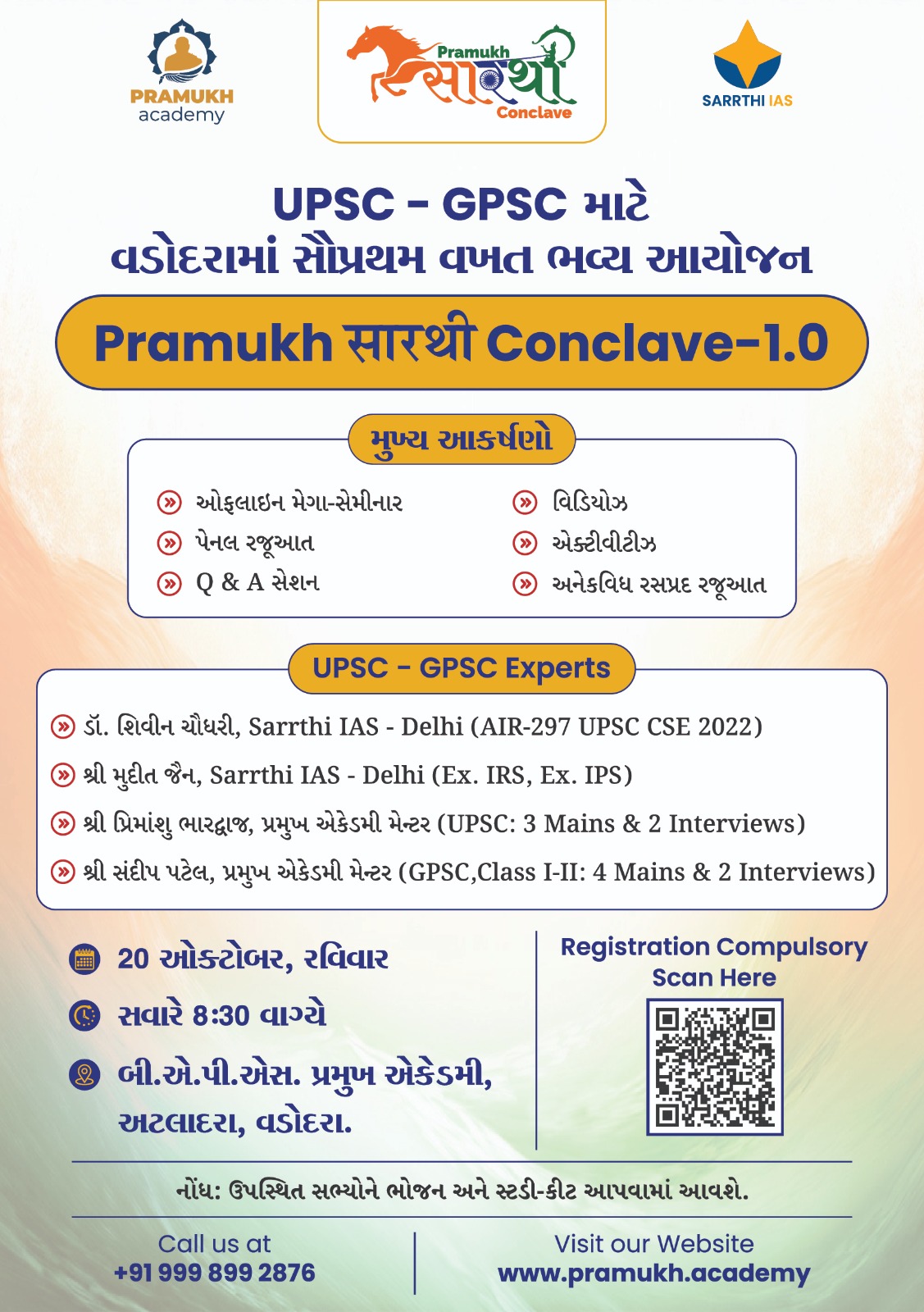Sardar Vallabhbhai Patel is also known as the Iron Man of India, but beyond the title, he was a leader whose actions spoke louder than any speech. He was born in 1875 in Nadiad Gujarat, Patel was not just a freedom fighter he was the man who united 562 princely states into one nation. While other leaders were dreaming of independence, Patel was already preparing for what would come after it, nation-building. That is why I believe that his leadership is not just history, it is a guidebook for today’s youth.
When I first read about Sardar Patel, I did not see him as just a political figure. I saw a man who believed that leadership wasn’t about power, it was about responsibility, clarity, courage, and unity. In today’s world, where competition, ego, and comparison dominate the minds of young people, Patel’s leadership offers rare but timeless lessons.
1.Leadership means standing firm, even if you stand alone
Sardar Patel was known for calm but unshakeable decision-making. During the integration of princely states, many rulers were hesitant, some were even strongly against joining India but Patel did not lose patience or confidence. He spoke less, but acted with absolute firmness. He respected everyone, but he never allowed confusion or fear to control the future of the nation.
This teaches me that real leadership is not about pleasing everyone, it is about doing what is right with courage, especially when the situation is uncertain. In our own lives too, whether it is choosing a career, speaking up for truth, or taking initiative, leadership begins when we refuse to stay silent out of fear.
2.Unity is not a slogan, it is an action
Today we talk about “Unity in Diversity,” but Patel actually proved it. He did not unite India through emotional speeches, but through practical action, negotiation, trust-building and national interest. He did not see people as kings, regions or religions he saw all as future citizens of one India.
This makes me think ‘do we really practice unity, or do we only post about it?’ Patel’s life tells us that unity is not created by words, but by decisions.
Whether it is a classroom, a workplace, or a community unity requires maturity, understanding, and sacrifice.
3.Discipline and efficiency matter more than loud promises
Patel was a man of discipline who did not believe in drama. He believed in silent execution. He organized relief during natural disasters, he built the Indian Civil Services, and he made sure that the new government worked with responsibility. For him, leadership was not about attention, it was about results.
In today’s world where people want instant success, instant fame, and instant recognition Patel shows us the power of consistency and discipline. He proved that strong leaders are not always loud, they are focused.
4.Be practical, not just emotional
Patel deeply loved the country, but he did not make decisions only from the heart .He used sharp practicality. He mixed realism with patriotism. He knew where to be strict, where to be patient, and where to compromise.
This is a strong leadership message for today’s youth, passion alone is not enough. We need clarity, we need balance, we need the ability to think beyond short-term emotions and take decisions that benefit the larger future.
5.Leadership is service, not self-promotion
Patel never tried to become famous and that is exactly why he became unforgettable. He worked not for position, but for purpose. He did not chase power, power naturally came to him because people trusted his integrity and dedication.
He teaches that true leadership is silent service not self-advertising. In a generation where people seek attention first and impact later Patel teaches us to reverse that order.
Conclusion
“India Still Needs A Leader“
Sardar Vallabhbhai Patel may have lived in the 20th century, but his leadership is a mirror for every youth of the 21st century. He shows that leadership is not about ruling others it is about uniting, protecting, guiding and building.
Bhavya Vijaybhai Kaneriya




wow! what a blog ,
amazing.
Bhavya
ખુબજ સરસ ટૂંકું અને ટચ
“ભારતને હજુ પણ એક નેતાની જરૂર છે”
સરદાર વલ્લભભાઈ પટેલ ભલે 20મી સદીમાં જીવ્યા હોય, પરંતુ તેમનું નેતૃત્વ 21મી સદીના દરેક યુવાન માટે એક અરીસો છે. તેઓ દર્શાવે છે કે નેતૃત્વ બીજાઓ પર શાસન કરવા વિશે નથી, પરંતુ તે એકતા, રક્ષણ, માર્ગદર્શન અને નિર્માણ વિશે છે.
Congratulations bhavya
Keep it up, proud of you
Jay swaminarayan
Beautiful blog… Great efforts… Keep it up Bhavyaben… Jai Swaminarayan 🙏🏻
Congratulation,
Very Nice blog.
Bhavya’s blog is greatest.
She is a hard worker.
Pushing to The grant.
It was really nice blog 🙂 of sardar vallabhbhai patel
Great job! Keep expressing your thoughts.The nation needs young voices like yours!
Very nice Bhavya’s blog.
You are an intelligent and hard worker student.
Meny meny Congratulation.
It’s wonderful Blog. Good job!
Do this many thing in your life ever, god bless you. 🤍🍁
Very nice 👌
Do more progress to proud everyone of family
Very very good job,. Excellent blog, God bless you🙏🙏
Wah bhavya ben…khub sundar rite tame sardar ne alekhya che.
Abhinandan.
Sardar saheb ne vadhare samajva hoy to shailesh sagpariya saheb ni youtube channel uper sardar katha na videos che e joi sakay.
Wah bhavya ben…khub sundar rite tame sardar ne alekhya che.
Abhinandan.
Sardar saheb ne vadhare samajva hoy to shailesh sagpariya saheb ni youtube channel uper sardar katha na videos che e joi sakay.
Great job Bhavya Really Appreciate god bless you
Very very nice Blog bhavya is very intelligent and Hard working girl we are all proud of you keep it up
Very nice 👍excellent blog
Excellent blog 👍
Dear Bhavya beta.. It was really good nice blog.. Excellent hard work.. God bless always for ur bright future ✨💫🙌👍
Very very Good job excellent blog god bless you. And. Pragat guru mahant swami maharaj na khub khub ashirvad varasata rahe te vi subhexa. From pravin p fefar. Jay swaminarayan.
Very very Good job excellent blog god bless you. And. Pragat guru mahant swami maharaj na khub khub ashirvad rahe te vi subhexa. From pravin p fefar. Jay swaminarayan.
Very nice blog. Good job
God bless you 🙏
ખુબ જ સરસ બ્લોગ લખ્યો છે. Good job Bhavya 👏 Jai Swaminarayan 🙏
Super Bhavya 👌👌
You wrote superb
Keep observing everything 🙏🙏
What a wonderful presentation, a very systematic as well informative, bhavya we proud of you keep it up.
Very good beta keep it up we are proud of you may God bless you always 🙏🙏
Really thoughtful! Good research! Keep it up Bhavya!!
દરેક પ્રતિભાગીઓ ને ધન્યવાદ, વંદન, આપ સર્વ નો અવિરત સતત , નિરંતર વિકાસ થાય એવી અભ્યર્થના
What a wonderful blog !! This blog shows proper research and dedication. So proud of you!! Keep it up 💫
“How inspiring it is. You are a diamond, destined to shine. Hold on to your confidence and believe in your own strength.”